Multiple Regions Beaches, Cities, Countryside, Wellness
Why sleep has become the new luxury travel essential
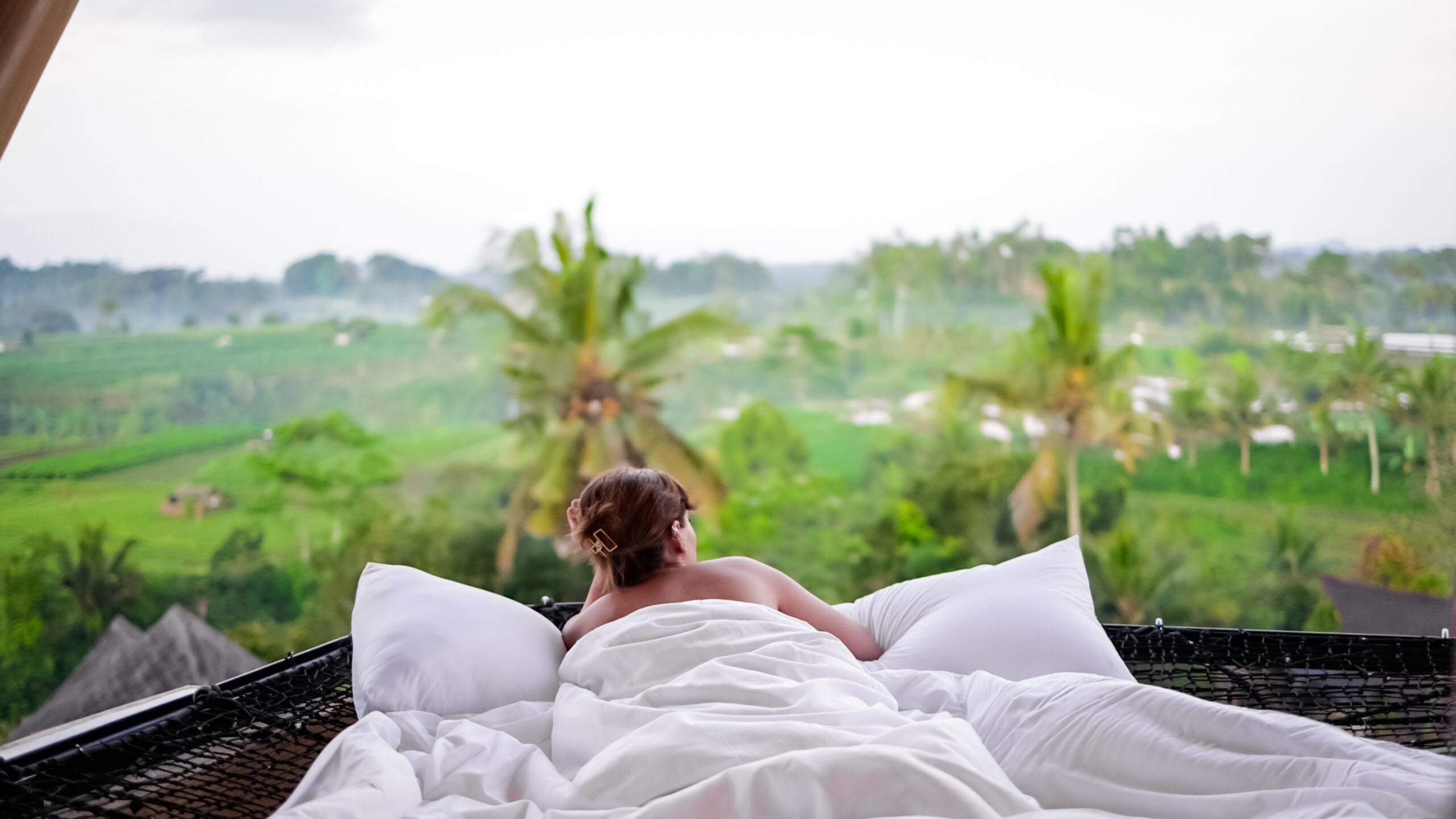
Sleep tourism in Bali, Indonesia
Across the world’s leading hotels and wellness retreats, sleep is no longer a side benefit – it’s the main event. From personalised sleep concierges to AI-powered mattresses, the art of rest has become travel’s most luxurious pursuit
It wasn’t that long ago that the goal of a holiday was simple: to have an adventure. Whether dreaming of an exotic beach, a buzzing metropolis or a snow-covered mountain range, travel was about escaping the daily grind, seeing the world through new eyes — and having fun along the way. Now, there’s a new reason to travel: to block all of that excitement out and get some shut-eye.
Sleep programs have emerged at hotels and resorts around the world, and far from being a fleeting trend, they have grown into a movement that speaks volumes about the modern luxury traveller — and the lengths brands will go to earn their loyalty.
In 2024 Hilton Australasia surveyed 1,000 Australians as part of its Trends Report, with the results suggesting we are an increasingly sleep-deprived country — two in five Australians get just six hours or less per night. “Our research has shown us both globally and now here in Australia that sleep has become such a rare commodity for many of us, that we’re consciously investing in our sleep and prioritising it whether at home or travelling,” says Paul Hutton, area vice president and head of Australasia, Hilton.
In response to this sleep drought and the subsequent rise of sleep tourism, Mandarin Oriental, COMO Hotels & Resorts, InterContinental, Langham, Hyatt and other global brands have rolled out initiatives aimed at lulling their weary guests into deep, restorative sleep.
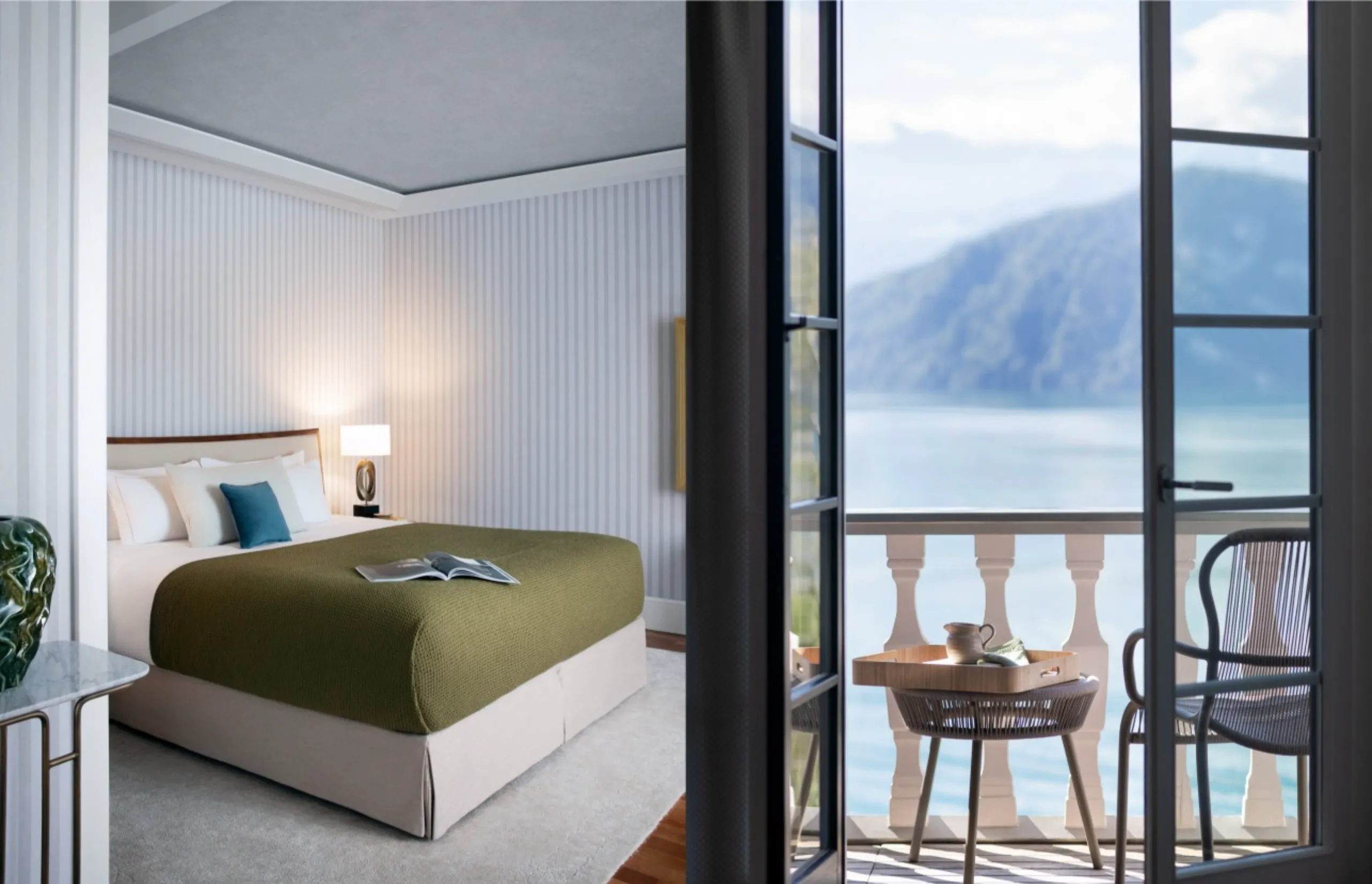
A new reason to travel
These brands know, as does anyone who practises good sleep hygiene, that environment is key to restorative rest. “Increasingly, we’re seeing that guests are selecting hotels based on the environment of the hotel room, from the soft furnishings to the temperature and noise levels, which we know has a large impact on quality of sleep,” says Hutton. In-room ‘sleep kits’ and comforting bedtime rituals tap into guests’ sensory experience, encouraging them to wind down while away from the usual stressors that can keep them in a constant state of tired-but-wired.
Langham Hotels & Resorts’ ‘Sleep Matters by Chuan’ program, offered at all properties including Sydney and Melbourne, was developed with the World Sleep Society to elevate rest into a tailored wellness experience. Guests receive turndown kits with herbal tea, earplugs and eye masks, along with in-room yoga mats and breathing guides rooted in traditional Chinese medicine. A dedicated ‘Sleep Matters Menu’ offers white noise machines, weighted blankets, pillow options and Chuan spa oils to personalise each guest’s wind-down.
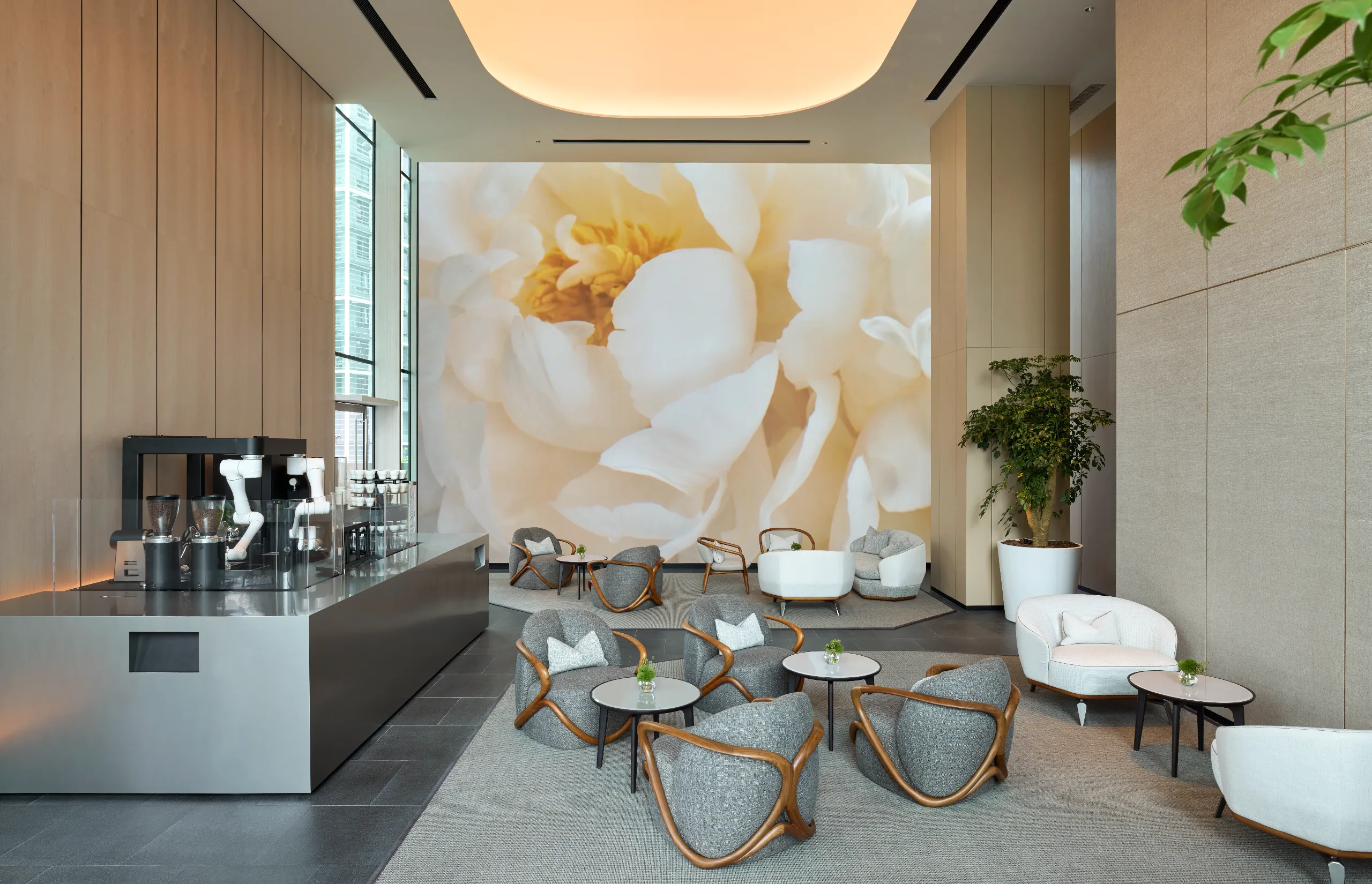
Sleep experts on call
In the United States, luxury wellness property Equinox Hotel New York puts sleep at the core of the guest experience. Rooms are designed as dark, quiet, cool sanctuaries and feature the brand’s science-backed Circadian Rhythm ‘AM/PM Rituals’ kit, which offers breathing techniques, custom shower gels and sleep-optimising routines. In the minibar are some 80 wellness products, so no willpower is required to forgo the usual sugary snacks and alcohol that can disrupt sleep.
On central London’s prestigious Harley Street — internationally renowned for its concentration of private medical specialists — award-winning Integrative Hypnotherapist and Sleep Expert Malminder Gill is at the coalface of the sleeplessness epidemic, having seen a big uptick in bookings. “In 2024 I saw an increase of around 30 per cent of clients coming to see me for sleep-related issues,” she says.
Such is the demand for more Zzzs that Gill has partnered with Mandarin Oriental’s Knightsbridge and Mayfair properties, and select hotels in Europe, as the brand’s in-house Sleep Concierge. The £550 (around AU$1,150), 60-minute one-on-one sessions can be conducted either in the spa or in a guest’s suite, and are followed by a bespoke, doze-inducing hypnosis designed to ensure the best possible night’s sleep — something that often eludes travellers in unfamiliar surroundings.
Closer to home on the powdery shores of Palm Cove in Tropical North Queensland, The Reef House Adults Retreat added a new, niche role to its staff line-up in 2024: a Director of Sleep and Rejuvenation. Sleep scientist Sabine Christelli elevates the resort’s ‘Sleep Easy’ program — which includes an in-room Sleep Support Guide and online resources that guests can take home — with optional private 30-minute sleep consultations.
But is sleeping really an art that needs to be mastered? Christelli says yes. “There is much in the way that we self-talk and relate to sleep that impacts the quality of sleep, so we explore habits from childhood and stressors in life that create a disconnect from optimised sleep,” she explains.
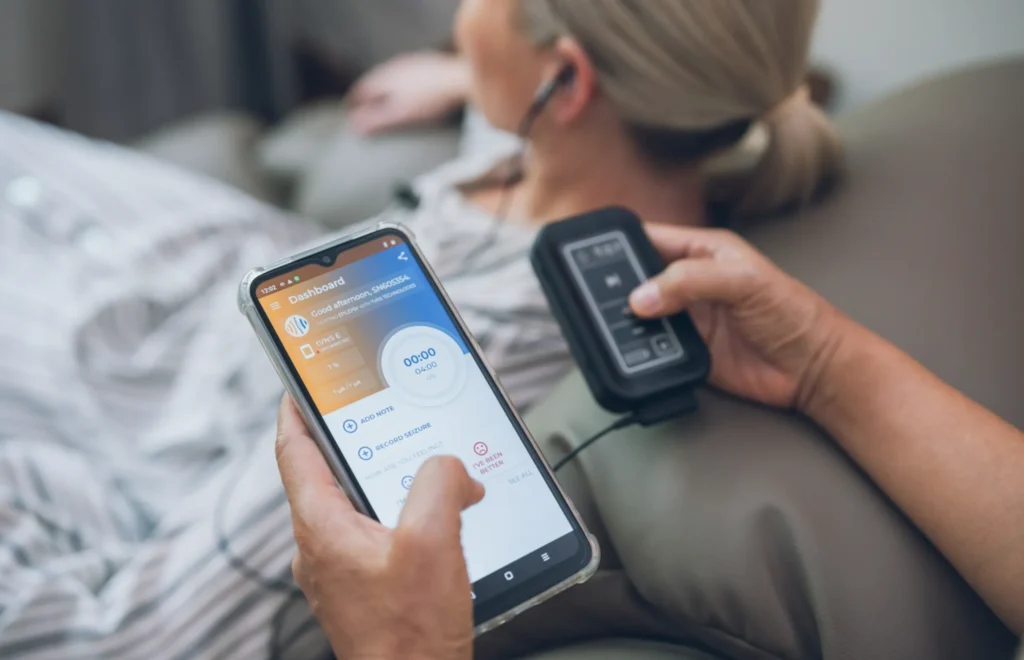
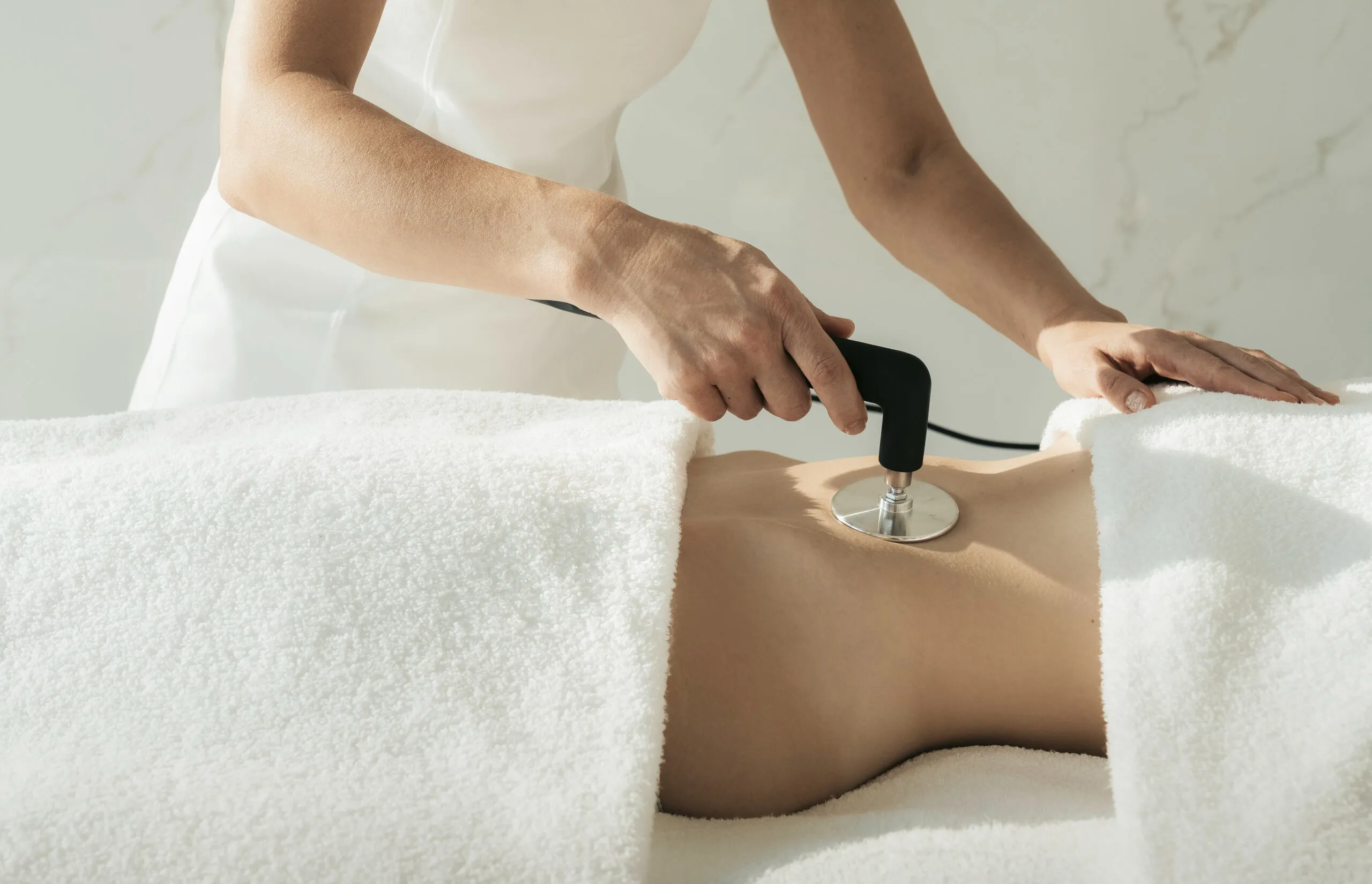
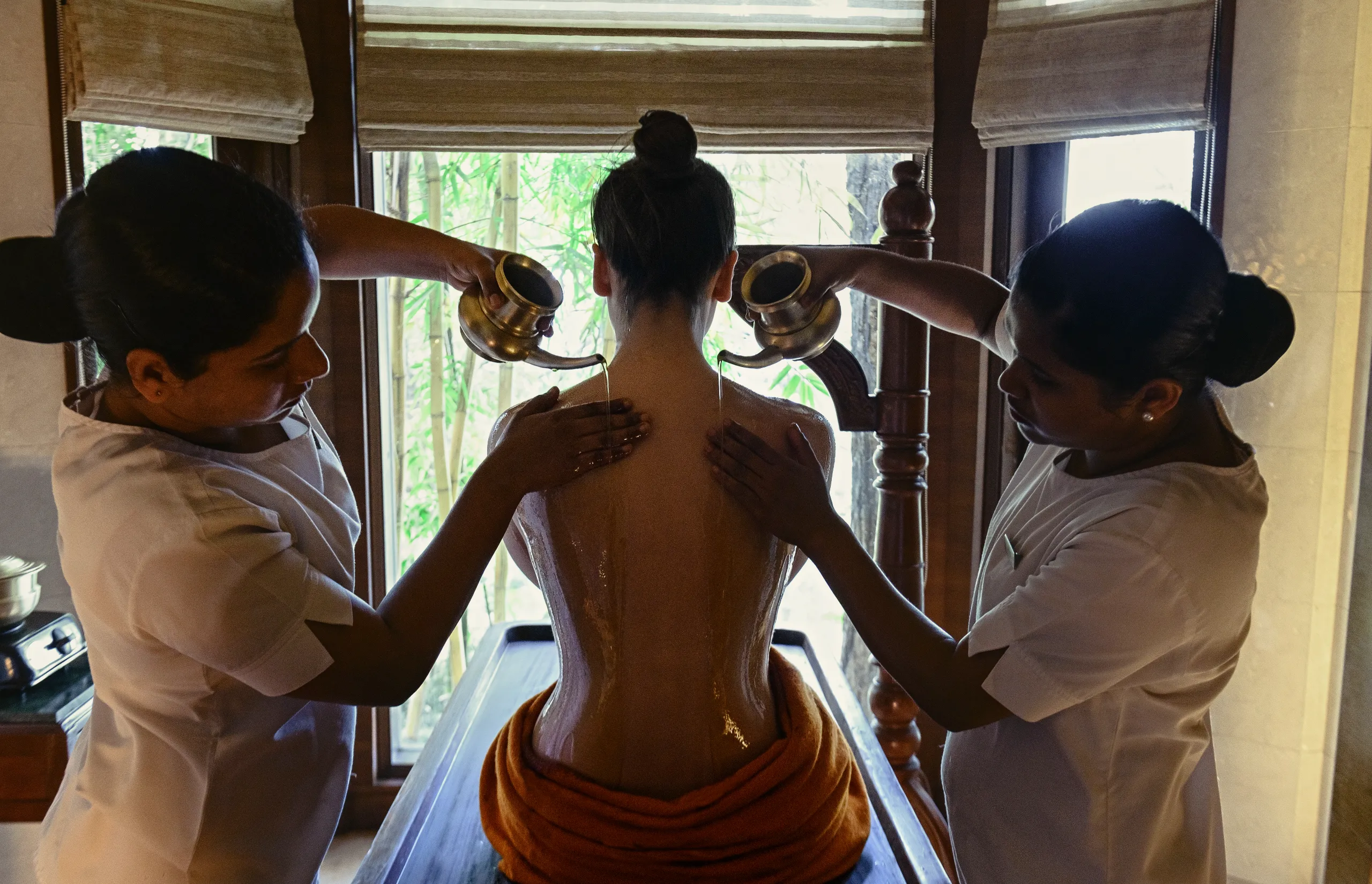
A journey to deep rest
Hilton’s Trends Report saw ‘rest and recharge’ as the top travel motivation among all ages in 2024. And for those who want to go deeper — and will go to the ends of the Earth for a decent rest — the ever-evolving world of wellness retreats happily delivers.
Award-winning retreat Ananda, in the remote reaches of the Himalayan foothills, offers a seven-night holistic ‘Sleep Enhancement Program’. Incorporating dietary corrections, Ayurvedic therapies, yoga, emotional healing and Traditional Chinese Medicine, the program goes beyond improving sleep quality to remove associated memory difficulties, cognitive dysfunction and fatigue. The fact that the property is a 40-hectare Maharaja’s palace estate overlooking the river Ganga and Rishikesh valley means days are as dreamy as the nights.
In Thailand, Kamalaya Koh Samui offers a dedicated five- or seven-night ‘Sleep Enhancement Program’ led by the resort’s traditional Chinese medicine practitioners and ‘life enhancement’ mentors. The program blends ancient and modern: herbal supplements, acupuncture, breathwork, mindfulness and Ayurvedic massages — all aimed at calming the nervous system and rebalancing the body’s energy for better sleep.
For AU$2,700 a night, guests of Santa Monica’s Fairmont Miramar Hotel & Bungalows can experience the state-of-the-art Serenity Suite, featuring a Bryte Balance smart mattress that adjusts to each sleeper, tracks rest via an app and gently wakes guests with a motion-based alarm
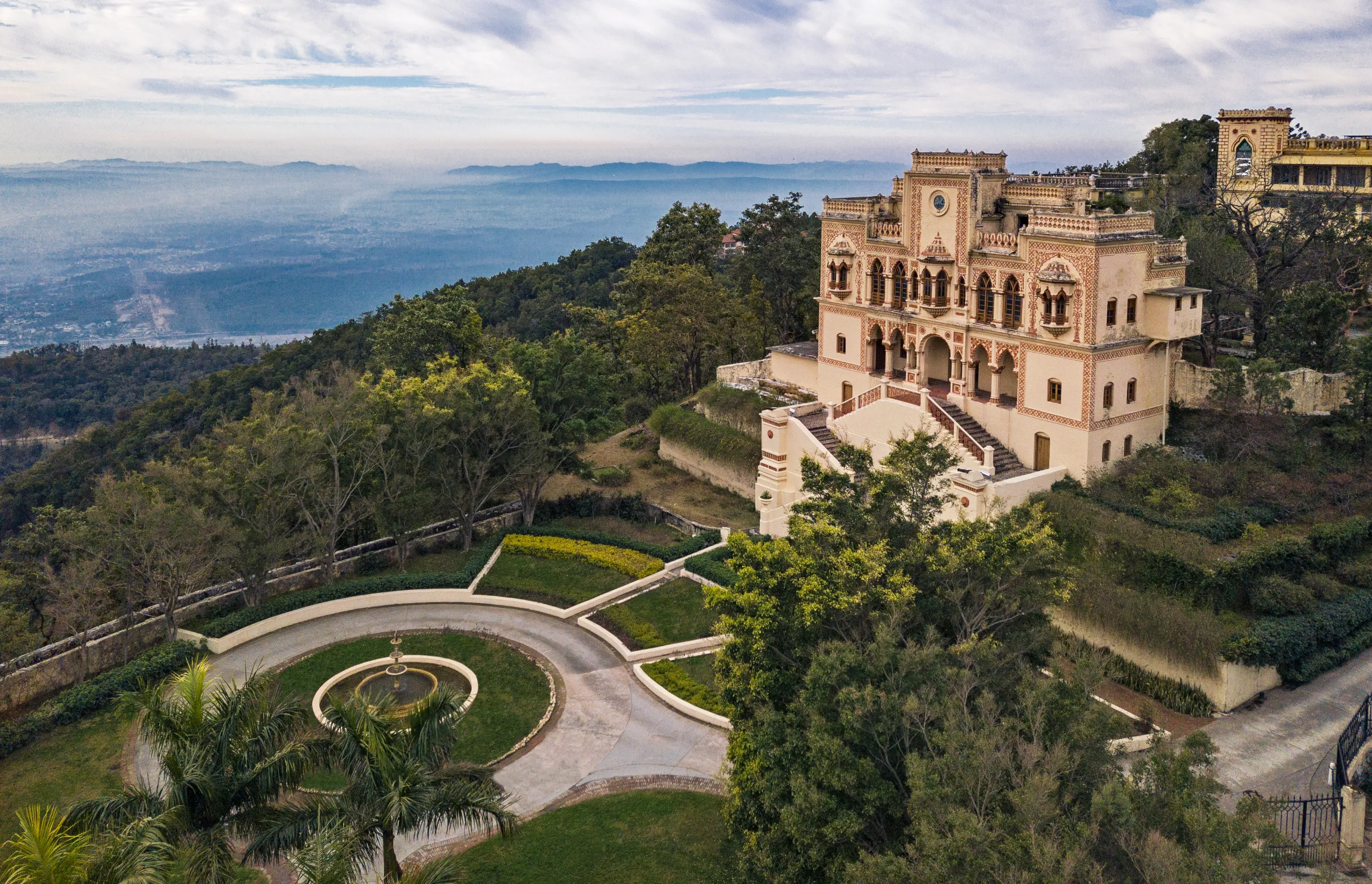
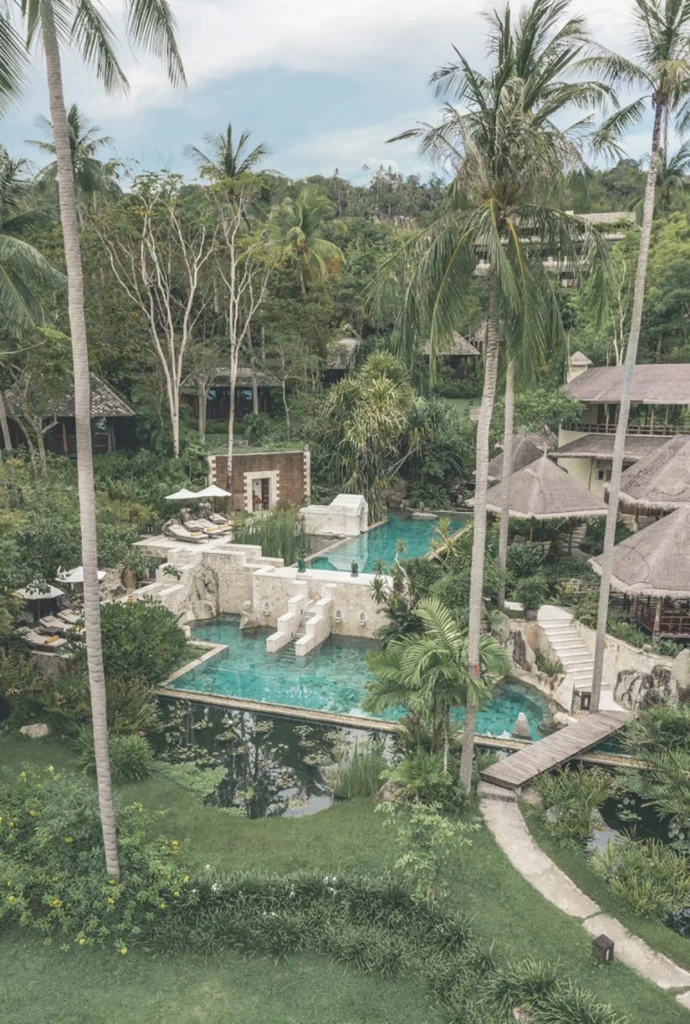
Technology meets tranquillity
Several hotels are leaning into innovation, using technology to guide guests into deeper rest — from AI-powered mattresses to rooms calibrated for circadian rhythms. Hawaii’s Sensei Lānaʻi, A Four Seasons Resort takes an evidence-based approach with its ‘Optimal Well-Being Program’, which starts even before check-in. Guests receive a wearable WHOOP 4.0 strap at home, allowing Sensei’s team to collect baseline metrics on sleep quality, recovery and heart rate. Upon arrival, a dedicated guide reviews the data and curates a bespoke itinerary aimed at fine-tuning their sleep schedule.
Similarly, Six Senses’ comprehensive ‘Sleep Program’ uses sleep trackers to measure breathing at night. The real-time biometric data is then analysed to build a sustainable, personalised sleep routine backed by measurable results. Developed with sleep expert Dr Michael J. Breus, it’s available at more than 20 properties worldwide and includes access to NASA-approved jetlag app Timeshifter, which provides an hour-by-hour plan to help travellers adjust to new time zones.
Cutting-edge medical spas in Europe, meanwhile, are taking things further. Chenot Palace Weggis in Switzerland offers a high-tech Sleep Cycles module as part of its ‘Recover & Energise’ program, using clinical-grade equipment to monitor brain waves and vital signs overnight. Guests also receive neuro-acoustic sessions to promote deep sleep and stay in custom-designed ‘Sleep Rooms’ with nature soundscapes and lighting that guide brain activity and improve overall ‘sleep architecture’.
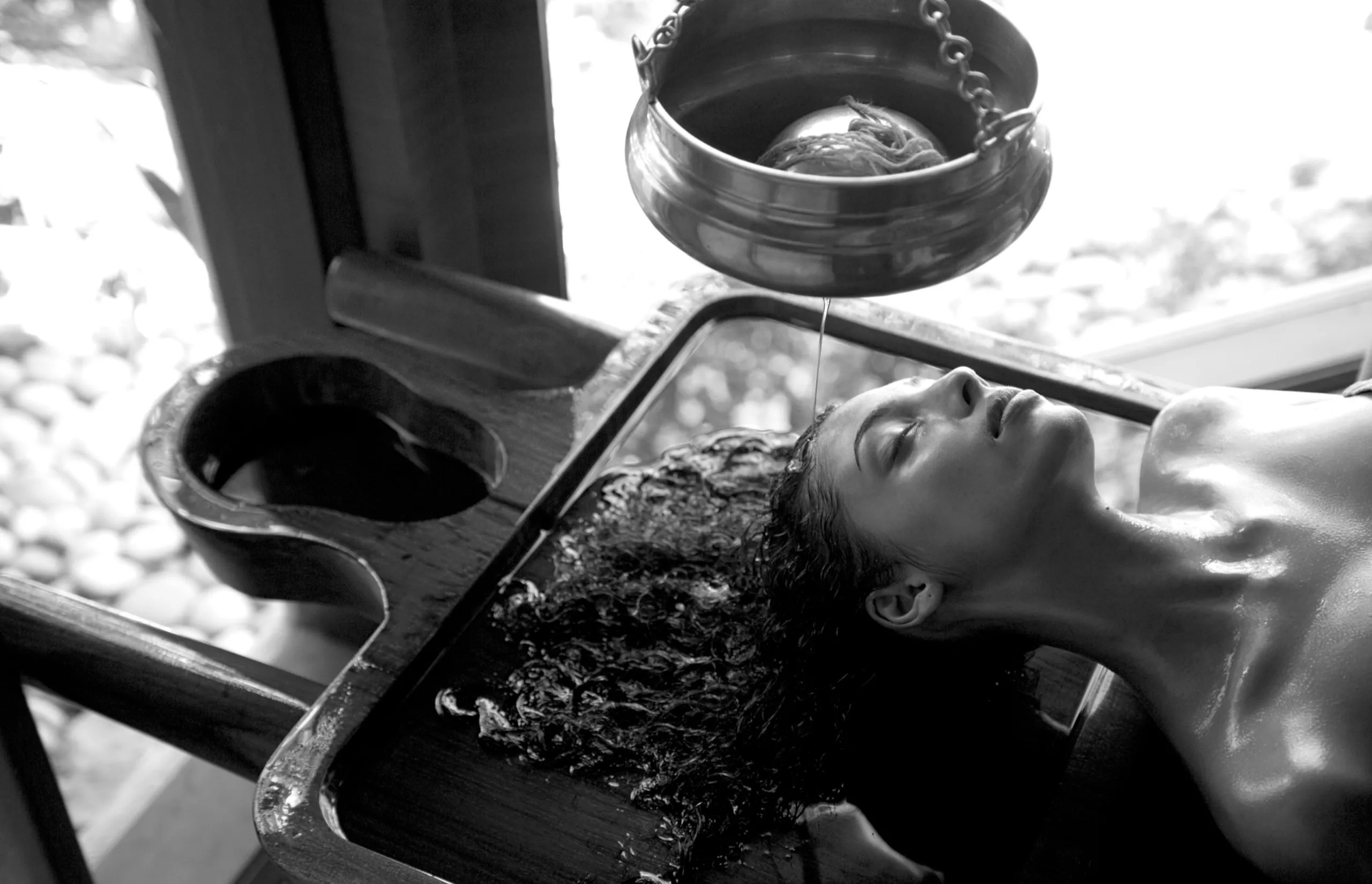
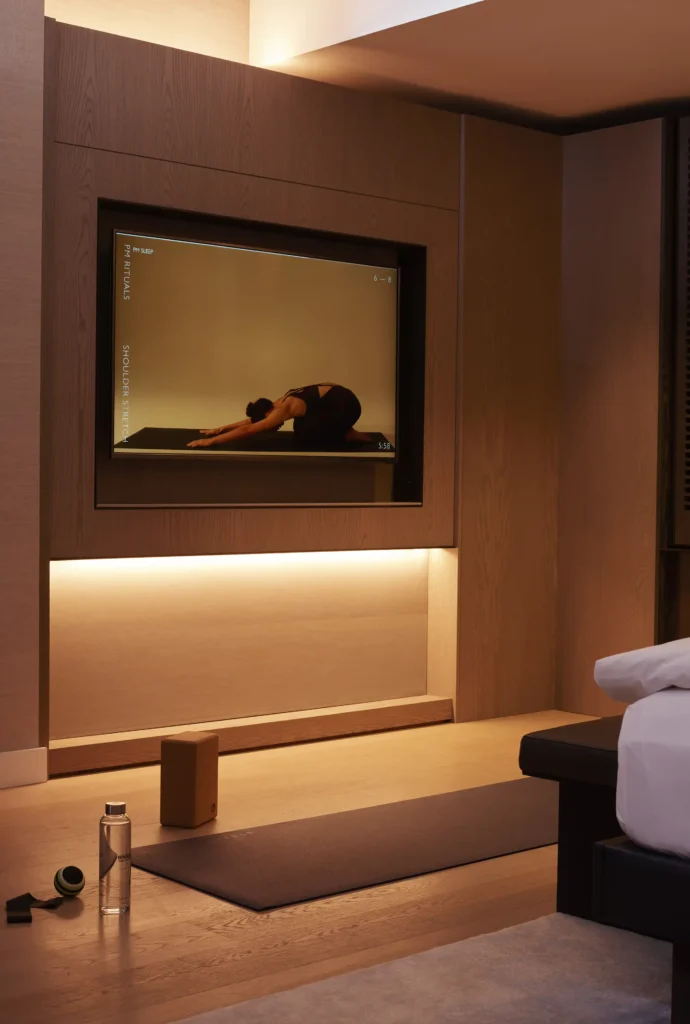
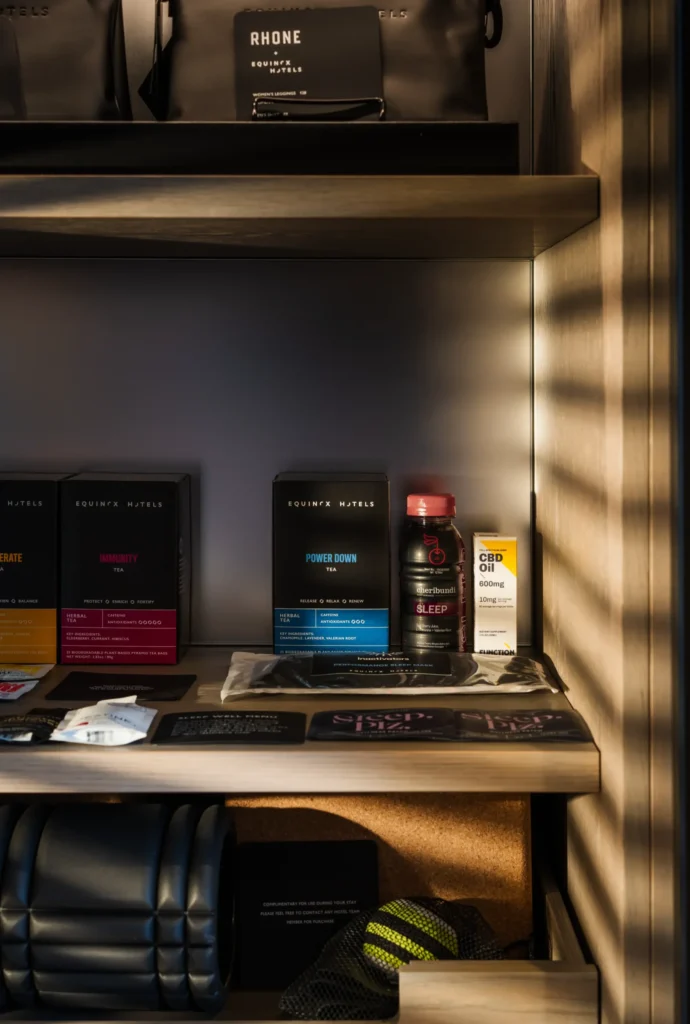
Sleep by design
COMO Metropolitan Singapore’s ‘Sleep Dreams’ program takes advantage of neuroscience-backed sound technology with the SleepHub device, which guides the brain through optimal sleep cycles and wakes guests at an ideal stage of rest. The program includes a digital ‘sleep screening’ by coaches from Somnus Sleep Wellness, and accommodation in cocoon-like COMO Suites designed by architect Koichiro Ikebuchi.
For AU$2,700 a night, guests of Santa Monica’s Fairmont Miramar Hotel & Bungalows can experience the state-of-the-art Serenity Suite, featuring a Bryte Balance smart mattress that adjusts to each sleeper, tracks rest via an app and gently wakes guests with a motion-based alarm. There’s also an air purification system, in-suite meditation technology and a vitamin-infused shower.
And, because bigger is always better in New York, The Towers at Lotte New York Palace offers a 325-square-metre Hästens-branded Ultimate Sleep Suite replete with a US$200,000 handmade horsehair bed by the Swedish brand. It might seem excessive, but if the new wave of sleep tourism tells us anything, it’s that you can’t put a price on a good night’s sleep.
Latest Articles
Don't miss the latest from Luxury Travel
